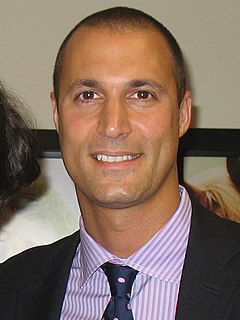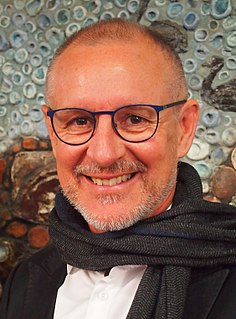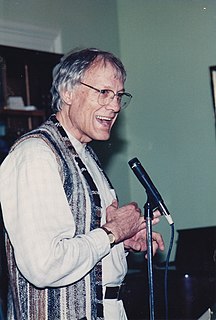A Quote by David Attenborough
The question is, are we happy to suppose that our grandchildren may never be able to see an elephant except in a picture book?
Related Quotes
Suppose you came across a woman lying on the street with an elephant sitting on her chest. You notice she is short of breath. Shortness of breath can be a symptom of heart problems. In her case, the much more likely cause is the elephant on her chest. For a long time, society put obstacles in the way of women who wanted to enter the sciences. That is the elephant. Until the playing field has veen leveled and lingering stereotypes are gone, you can't even ask the question.
Suppose within each book there is another book, and within every letter on every page another volume constantly unfolding; but these volumes take no space on the desk. Suppose knowledge could be reduced to a quintessence, held within a picture, a sign, held within a place which is no place. Suppose the human skull were to become capacious, spaces opening inside it, humming chambers like beehives.
If you are happy, you are happy; nobody asks you why you are happy. Yes, if you are miserable, a question is relevant. If you are miserable, somebody can ask why you are miserable, and the question is relevant - because misery is against nature, something wrong is happening. When you are happy, nobody asks you why you are happy, except for a few neurotics. There are such people; I cannot deny the possibility.
The systems of stereotypes may be the core of our personal tradition, the defenses of our position in society. They are an ordered more or less consistent picture of the world, to which our habits, our tastes, our capacities, our comforts and our hopes have adjusted themselves. They may not be a complete picture of the world, but they are a picture of a possible world to which we are adapted. In that world, people and things have their well-known places, and do certain expected things. We feel at home there. We fit in. We are members.
I don't know what it is about death that makes it so hard. I suppose it's the one-sided communication; the fact that we never get to ask our loved one if she suffered, if she is happy wherever she is now...if she is somewhere. It's the question mark that comes with death that we can't face, not the period.
A library is a good place to go when you feel unhappy, for there, in a book, you may find encouragement and comfort. A library is a good place to go when you feel bewildered or undecided, for there, in a book, you may have your question answered. Books are good company, in sad times and happy times, for books are people - people who have managed to stay alive by hiding between the covers of a book.
The gift our enemy may be able to bring us: to see aspects of ourselves that we cannot discover any other way than through our enemies. Our friends seldom tell us these things; they are our friends precisely because they are able to overlook or ignore this part of us. The enemy is thus not merely a hurdle to be leaped on the way to God. The enemy can be the way to God. We cannot come to terms with our shadow except through our enemies.































